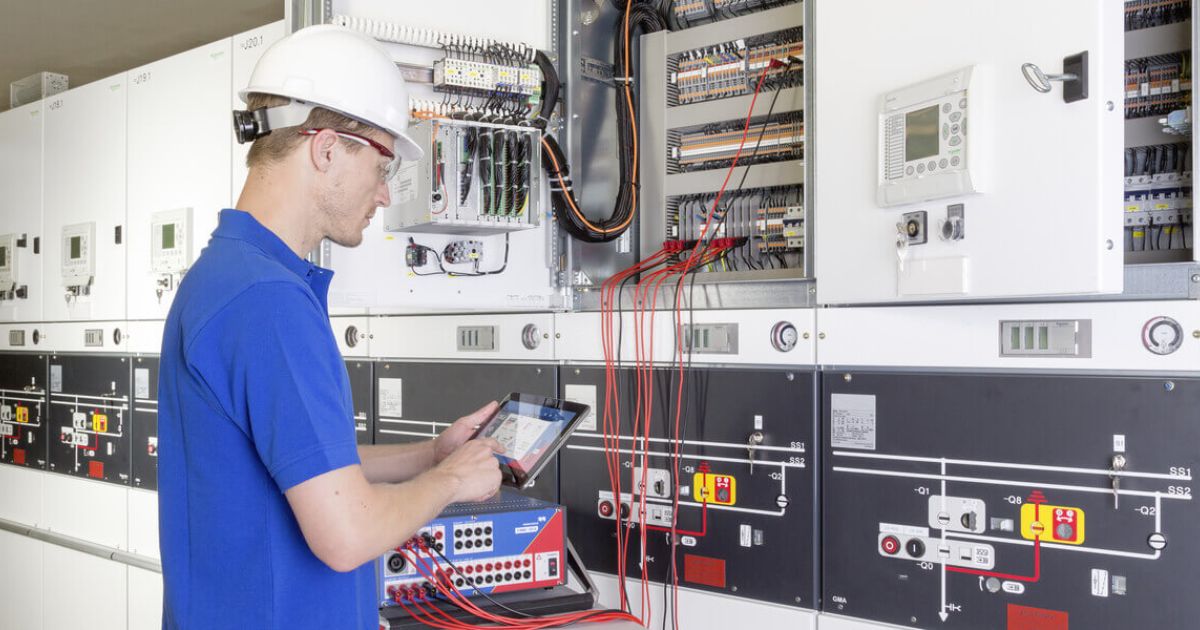| Low Voltage Tech
Low voltage tech refers to systems and equipment that operate on lower electrical power, typically below 50 volts. This includes things like security systems, network cabling, and home automation. Low voltage technology is commonly used for safer, energy-efficient installations in residential and commercial settings Curious about the technology behind your home’s security and smart systems? Low voltage tech powers a range of essential devices, from surveillance cameras to Wi-Fi networks. Discover how this energy-efficient solution keeps your home connected and secure |
Which Career Outlook is Better?
When comparing career outlooks, assessing industry growth, salary potential, and job stability is crucial. For those considering technical fields, both high and low-voltage careers offer unique benefits. High-voltage roles typically involve more intense training and certification but often come with higher pay scales. However, low-voltage technicians, who focus on installing and maintaining systems like security alarms, communication lines, and network cabling, are increasingly in demand as businesses and homes incorporate more connected devices.
The job market for low-voltage technicians is expanding, especially with the rise of smart homes and IoT technology. This career offers steady work and opportunities for specialization, such as in security systems or data centers. On the other hand, high-voltage careers often come with higher physical risk and require greater compliance with safety standards. In contrast, low-voltage roles are generally safer and offer flexible working environments. When choosing between the two, consider long-term growth, personal interests, and willingness to handle high-risk scenarios. Both careers have positive growth trajectories, but low-voltage careers may offer more stability with evolving technology.
Low Voltage Technician Duties and Responsibilities
Low-voltage technicians are responsible for the installation, maintenance, and troubleshooting of low-voltage systems, typically under 50 volts. Their duties often include setting up and maintaining alarm systems, CCTV cameras, fire alarms, and audio-visual equipment. These technicians may also work on network cabling for internet and telecommunication systems. They assess and interpret wiring blueprints and circuit diagrams to ensure proper installations. Safety is a key part of their role, requiring adherence to specific codes and regulations to prevent electrical hazards.
Additionally, low-voltage technicians frequently perform diagnostic tests to identify issues and make necessary repairs, ensuring all systems function properly. Communication skills are important, as they often work with clients, explaining technical issues in easy-to-understand terms. The job requires the use of various tools, from basic hand tools to specialized equipment for measuring current and voltage. Staying updated on industry developments, such as emerging smart home technologies, is also important. Ultimately, a low-voltage technician’s role is critical in supporting modern infrastructure through reliable, low-power solutions.
Your Responsibilities
| Responsibility | Description |
| Installation | Set up low-voltage systems, including security alarms, CCTV, fire alarms, and AV equipment. |
| System Maintenance | Regularly inspect and maintain systems to ensure they are functioning optimally and meet safety standards. |
| Troubleshooting | Diagnose issues within systems, identify faults, and perform necessary repairs or adjustments. |
| Wiring and Cabling | Install and organize cables, ensuring proper connectivity for networks, communications, and other systems. |
| Blueprint Interpretation | Read and interpret wiring diagrams and blueprints for accurate installations according to specifications. |
| Safety Compliance | Adhere to safety standards and electrical codes to prevent hazards and ensure a safe work environment. |
| Diagnostic Testing | Use specialized tools to measure voltage and current, ensuring system functionality and detecting problems. |
| Client Communication | Explain technical aspects and system functions to clients in simple terms, answering any questions. |
| System Upgrades | Update or replace outdated equipment and integrate new technology as needed for improved performance. |
| Documentation | Record installation processes, maintenance activities, and repairs for future reference and compliance. |
| Equipment Handling | Use hand tools and testing devices accurately, handling equipment carefully to prevent damage. |
| Technical Support | Provide on-site or remote support to clients, troubleshooting issues and guiding them through minor fixes. |
| Training and Development | Stay informed about new products and emerging trends, such as smart home and IoT technology. |
| Inventory Management | Track and manage equipment and tools to ensure availability for all required installations and repairs. |
| Customer Service | Maintain a professional, courteous attitude towards clients to foster trust and satisfaction with services. |
What Does a Low Voltage Technician Do?
A low voltage technician specializes in working with electrical systems that operate at 50 volts or less. Their primary role involves installing, maintaining, and repairing systems such as security alarms, CCTV cameras, audio-visual systems, and internet cabling. They work across various settings, from residential homes to commercial buildings, handling essential low-voltage systems that power everyday technology. Typically, they start their day by reviewing job orders and checking equipment for installation or repair needs.
These technicians interpret wiring diagrams, install cables, connect devices, and conduct safety tests to ensure functionality. In troubleshooting, they use specialized tools to locate faults and perform repairs or replacements. Low voltage technicians must also adhere to safety codes, working with careful precision to prevent electrical hazards. Additionally, they often interact with clients, explaining system operations or answering technical questions. Staying updated on the latest technology trends, such as smart home devices and network expansions, is also part of their job. Overall, low voltage technicians are key players in maintaining connected, secure environments for homes and businesses.
Low Voltage Technician Skills and Qualifications
Low voltage technicians require a mix of technical and interpersonal skills to excel in their roles. Proficiency with electrical tools and an understanding of electrical principles are essential for managing installation and repair work accurately. They must be able to read wiring blueprints and understand circuitry, enabling them to handle various systems from security to networking. Strong troubleshooting skills are necessary for identifying and fixing system faults efficiently. Attention to detail is crucial, as even small errors can affect system performance. Familiarity with safety protocols and compliance standards ensures their work meets industry regulations.
Additionally, low voltage technicians should possess good communication skills to explain system functions and troubleshoot issues with clients. A technical certification or degree in electronics or a related field is often required, as well as hands-on experience through apprenticeships or previous jobs. Physical stamina and dexterity are important for tasks like climbing, lifting, and handling equipment. Finally, staying updated with evolving technologies, such as IoT and smart home devices, enhances their ability to offer reliable solutions.
What makes a good Low Voltage Technician?
- Technical Proficiency: A good low voltage technician must have a solid understanding of electrical systems, including low voltage wiring, circuit design, and system components.
- Problem-Solving Skills: The ability to troubleshoot and diagnose issues effectively is crucial. A skilled technician can quickly identify problems and develop efficient solutions.
- attention to Detail: Precision is vital in this role. A good technician pays close attention to wiring diagrams and installation instructions to ensure systems function correctly.
- Strong Communication Skills: Effective communication is essential for explaining technical concepts to clients and collaborating with team members. A good technician can translate complex information into understandable terms.
- Safety Awareness: Knowledge of safety protocols and adherence to regulations is critical. A good technician prioritizes safety to prevent accidents and ensure compliance with electrical codes.
- Hands-On Experience: Practical experience, whether through apprenticeships or previous jobs, is important. A good technician develops skills over time through hands-on work in the field.
- Adaptability: Technology in the low voltage sector is constantly evolving. A good technician is open to learning and adapting to new systems and technologies, such as smart home devices and network upgrades.
- Customer Service Orientation: Providing excellent customer service is key. A good technician understands client needs, addresses concerns, and builds positive relationships for future business.
- Team Collaboration: Many projects require working with other technicians and professionals. A good technician collaborates effectively, contributing to a cohesive team environment.
- Commitment to Continuing Education: The best technicians stay current with industry trends and advancements. A commitment to ongoing training and certification helps them maintain expertise and improve their skills



